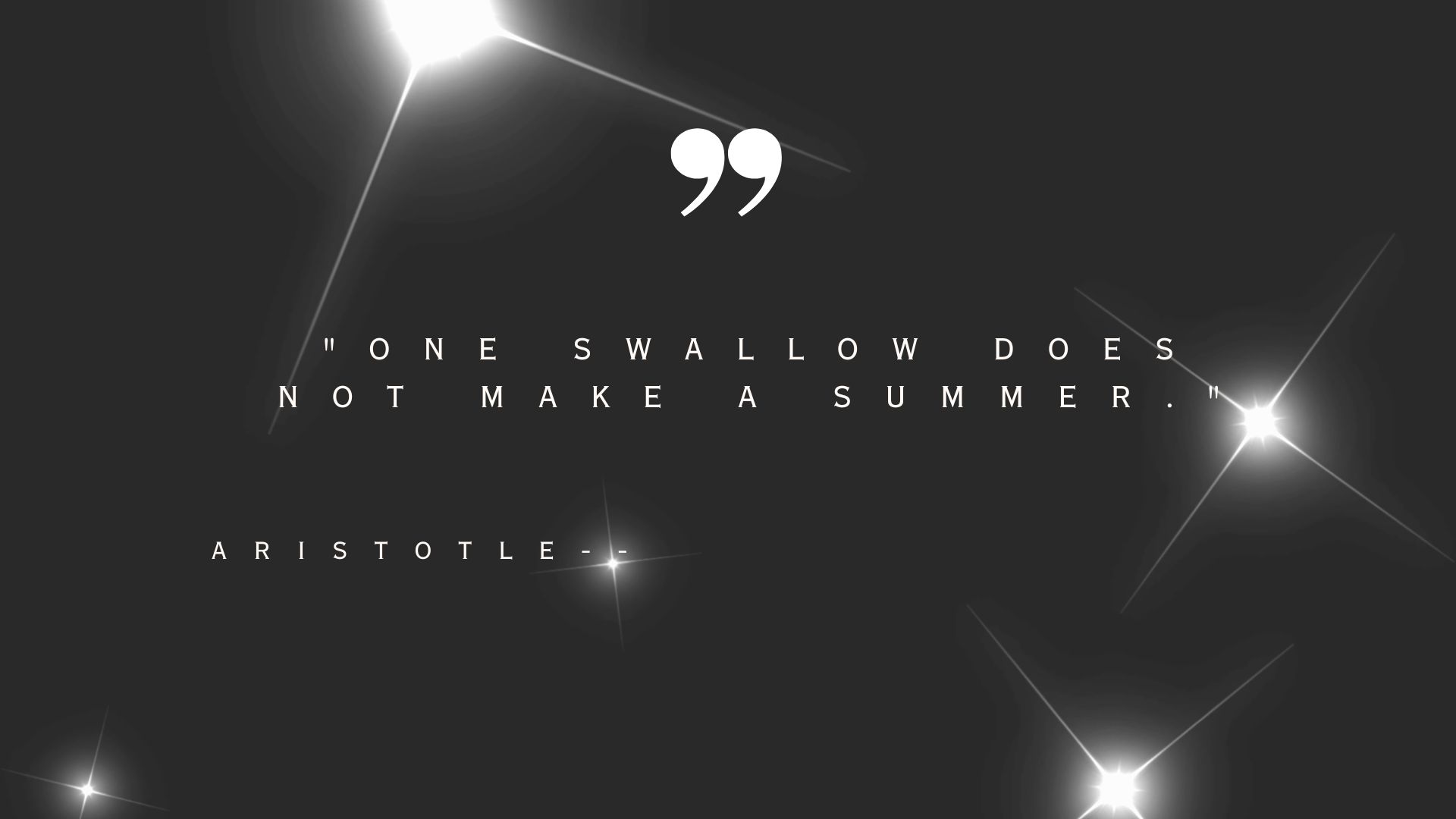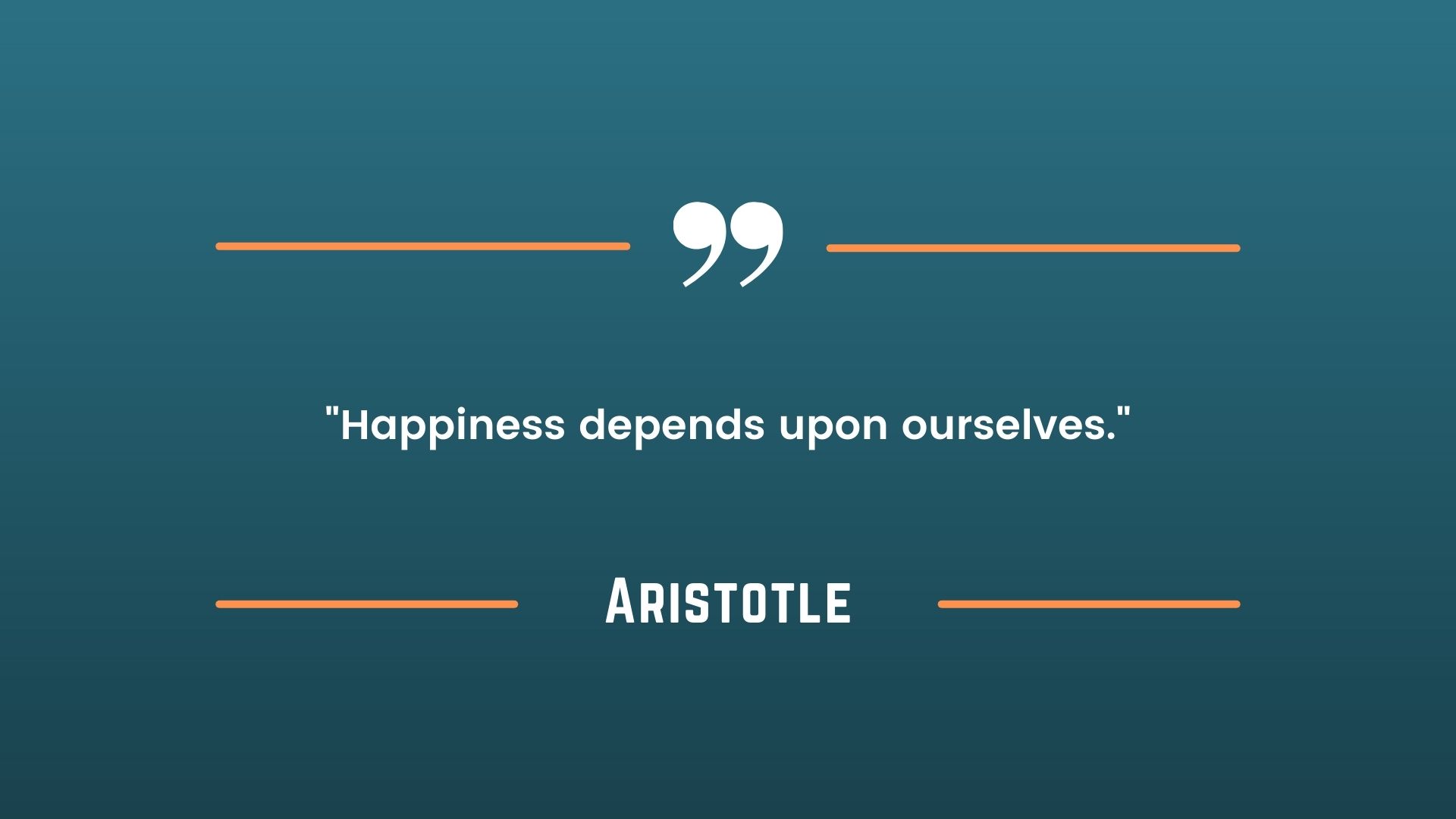“One swallow does not make a summer.”
–Aristotle
The quote “One swallow does not make a summer” is attributed to the ancient Greek philosopher Aristotle. This timeless proverb conveys a valuable lesson about drawing hasty conclusions based on isolated events. The metaphorical expression uses the arrival of a single swallow to caution against generalizing or assuming a larger pattern or outcome. To truly understand the essence of this quote, let’s explore its meaning and implications under the following subheadings.
- Context and Origin: Aristotle, one of the most influential philosophers in history, lived in ancient Greece around 384 BCE to 322 BCE. He wrote extensively on various subjects, including ethics, politics, logic, and metaphysics. The quote “One swallow does not make a summer” comes from his work “Nicomachean Ethics,” in which he discusses the nature of happiness and virtuous living.
- Literal Interpretation: On a literal level, the quote refers to the natural phenomenon of swallows migrating during the change of seasons. Swallows are known to appear in the warmer months, particularly during the summer season. However, the arrival of a single swallow does not necessarily indicate the beginning of summer.
- The Metaphorical Meaning: Beyond the literal sense, the quote carries a metaphorical significance. It warns against making sweeping judgments or conclusions based solely on isolated instances or limited evidence. Just as a single swallow’s arrival does not guarantee the arrival of summer, a single positive or negative event does not guarantee a broader trend or outcome.
- Implications in Decision-Making: In various aspects of life, this proverb serves as a reminder of critical thinking and the need for careful consideration before drawing conclusions. Whether in personal matters, business decisions, or scientific observations, it cautions against jumping to conclusions prematurely.
- Importance in Logic and Reasoning: Aristotle was a proponent of logical reasoning and the scientific method. The quote aligns with his emphasis on inductive reasoning, which involves drawing general conclusions from specific observations. However, he also cautioned against fallacies, and the quote reinforces the need for proper evidence and reasoning to establish meaningful conclusions.
- Avoiding Bias and Superstitions: This quote encourages individuals to be cautious about biases and superstitions. It is easy to fall into the trap of making judgments based on limited information or preconceived beliefs. Aristotle’s quote advises us to adopt a more objective and evidence-based approach to avoid errors in judgment.
Conclusion:
Aristotle’s quote, “One swallow does not make a summer,” serves as a timeless piece of wisdom that encourages us to think critically and avoid hasty generalizations. It urges us to consider evidence, multiple observations, and a broader context before drawing conclusions or making important decisions. By doing so, we can cultivate a more rational and informed approach to understanding the world around us.




